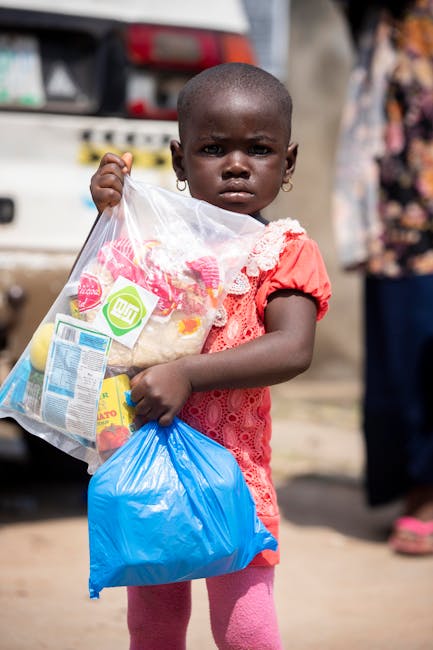Understanding the Palestine Children’s Relief Fund (PCRF)
The Palestine Children’s Relief Fund (PCRF) is a non-profit organization dedicated to providing vital medical care and support to children in Palestine. Operating since 1998, the PCRF has become a beacon of hope for countless children facing immense challenges due to the ongoing Israeli-Palestinian conflict and the socio-economic realities of the region. Their mission is simple yet profound: to improve the lives of Palestinian children by ensuring they receive the medical attention they desperately need.
The Critical Need for PCRF’s Services
The situation for children in Palestine is complex and often precarious. Years of conflict have left a devastating mark, resulting in significant infrastructural damage, limited access to healthcare, and widespread poverty. Many children suffer from injuries sustained during conflict, chronic illnesses exacerbated by a lack of resources, and the psychological trauma resulting from living in a war zone. These challenges are further compounded by systemic issues such as inadequate sanitation, malnutrition, and lack of access to clean water, all of which disproportionately impact children.
Medical Challenges Faced by Palestinian Children:
- Trauma Injuries: Children are often victims of violence, experiencing injuries from explosions, gunfire, and other forms of conflict-related trauma.
- Chronic Illnesses: Limited access to healthcare leads to the worsening of chronic conditions, including heart disease, cancer, and other illnesses that often require specialized care unavailable within Palestine.
- Birth Defects and Genetic Disorders: Environmental factors and limited prenatal care contribute to the incidence of birth defects and genetic disorders among Palestinian children.
- Mental Health Issues: The psychological toll of conflict, poverty, and displacement significantly impacts the mental well-being of children, leading to anxiety, depression, and PTSD.
- Lack of Access to Specialized Care: Many children require specialized medical treatments unavailable in Palestine, necessitating expensive and difficult travel arrangements for treatment abroad.
PCRF’s Multifaceted Approach to Providing Aid
The PCRF tackles these challenges through a multi-pronged strategy. They don’t just offer financial assistance; they provide a comprehensive range of services that address the holistic needs of Palestinian children. This includes:
Direct Medical Assistance:
PCRF offers direct financial assistance to families struggling to afford essential medical treatments, including surgeries, specialized medical equipment, and hospital stays, both within Palestine and internationally. They also provide funding for medications, therapies, and rehabilitation services.
Mobile Medical Clinics:
Reaching remote and underserved areas is a priority for PCRF. They operate mobile medical clinics that provide vital healthcare services directly to communities with limited access to healthcare facilities. These clinics offer basic medical examinations, vaccinations, and health education.
Specialized Medical Programs:
PCRF partners with hospitals and medical centers both in Palestine and internationally to provide specialized medical care for children with complex conditions. This often includes arranging travel, accommodations, and post-treatment care.
Capacity Building and Training:
Recognizing the importance of sustainable solutions, PCRF invests in capacity building and training programs for Palestinian healthcare professionals. This ensures the long-term improvement of the healthcare system within Palestine.
Advocacy and Awareness:
PCRF actively advocates for the rights of Palestinian children and raises awareness about the challenges they face. They work to create a global community of support that understands the urgency of the situation and the importance of supporting children in need.
Transparency and Accountability in PCRF’s Operations
PCRF maintains a strong commitment to transparency and accountability in its operations. They regularly publish financial reports and impact assessments to demonstrate the effectiveness of their programs and ensure that donations are used responsibly. They are also transparent about their partnerships and collaborations, building trust with donors and the communities they serve.
How You Can Support PCRF’s Mission
There are several ways you can contribute to PCRF’s crucial work:
Financial Donations:
Financial contributions are vital to supporting PCRF’s ongoing operations. Even small donations can make a significant difference in a child’s life.
Volunteer Your Time:
Volunteers play a crucial role in PCRF’s success. If you have skills in fundraising, communications, or healthcare, you can significantly contribute to their efforts.
Spread Awareness:
Sharing PCRF’s story with your friends, family, and community can help raise awareness about the critical need for support.
The Impact of PCRF on the Lives of Palestinian Children
The impact of PCRF’s work is undeniable. Countless stories illustrate the transformative effect their assistance has on the lives of Palestinian children. Children who were once facing insurmountable medical challenges are now thriving, thanks to the support and care provided by PCRF. Their work provides not only medical solutions but also hope and a brighter future for children caught in the midst of conflict.
The Future of PCRF and the Ongoing Need for Support
The need for PCRF’s services is ongoing. The situation in Palestine remains complex and challenging, and the long-term effects of conflict continue to impact the well-being of Palestinian children. Continued support is essential to ensure PCRF can maintain its vital services and provide hope to future generations.
Conclusion: A Call to Action
The Palestine Children’s Relief Fund represents a beacon of hope for children living in difficult circumstances. By supporting their vital work, we can make a tangible difference in the lives of vulnerable children and contribute to a brighter future for Palestine. Your contribution, regardless of size, can help to ensure these children receive the medical care and support they desperately need.

